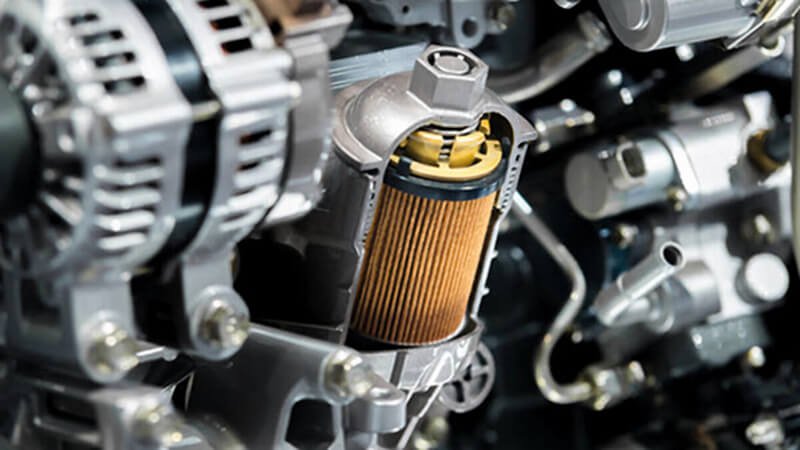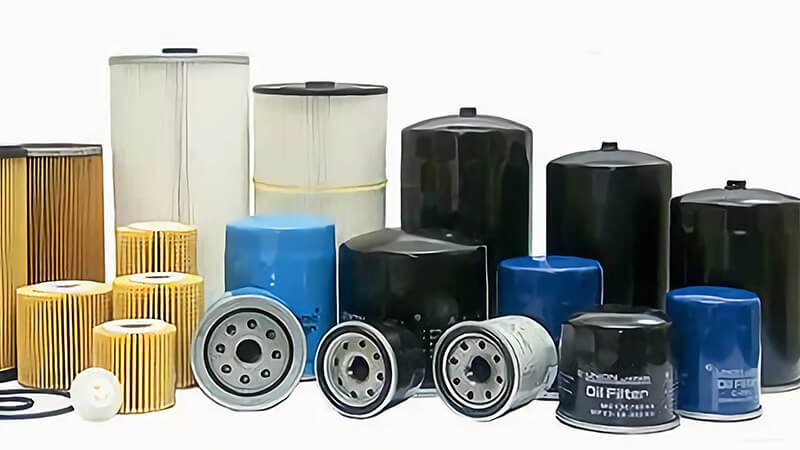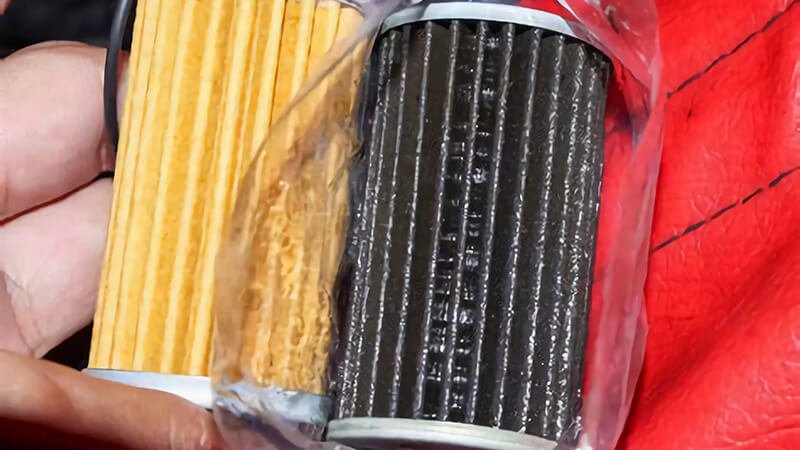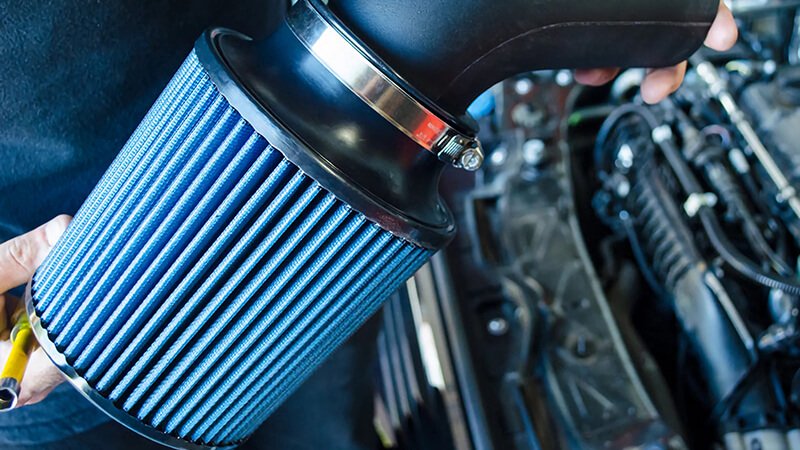When customers look to save money, reusing disposable oil filters might seem like a shortcut. But this shortcut leads straight to engine failure, repair bills, and long-term damage. I’ve seen it happen too many times.
Yes, reusing a disposable oil filter can seriously damage your engine by allowing contaminated oil to circulate, leading to increased friction, overheating, and early engine failure.
Most people don’t realize that oil filters play a critical role in engine health. They think changing the oil is enough. But without a clean, reliable filter, even fresh oil can't do its job. In this article, I’ll explain why reusing a disposable oil filter is one of the most expensive mistakes you can make—and how Runex Auto filters can help you avoid it.

Is it bad to reuse an oil filter for my car?
Reusing an oil filter may look harmless from the outside. No dents, no cracks—what’s the risk? That’s the problem. The damage it causes is hidden deep inside your engine, where oil flow, pressure, and purity determine how long it’ll last.
Yes, reusing an oil filter is bad for your car because it can't trap contaminants effectively after its first use, which leads to oil sludge, clogged passages, and severe engine damage over time.
Why used filters fail silently
Used oil filters lose their efficiency for three reasons:
- Clogged filter media1: Once saturated with debris, the filter can no longer trap new particles. Instead, dirty oil flows back into the engine, circulating grit and metal fragments.
- Weakened internal seals2: Disposable filters are not designed to maintain pressure over multiple heat cycles. Reusing them compromises the seal, allowing unfiltered oil to bypass the element entirely.
- Bypass valve engagement: Most oil filters have a bypass valve that opens when the filter is clogged to prevent starvation. In reused filters, this valve is triggered more often—letting dirty oil flood the system.
| Failure Mode | Impact on Engine | Notes |
|---|---|---|
| Media saturation | Grit recirculation | Increases friction and wear |
| Gasket deterioration | Oil leakage and pressure loss | Leads to overheating and breakdowns |
| Valve fatigue | Bypass activation too soon | Dirty oil flows unchecked |
From my experience at Runex Auto, our disposable oil filters are tested for single-use performance. They have consistent filtration efficiency, low bypass rates, and heat-resistant seals. Using them only once guarantees engine protection. Reuse voids that guarantee.

Can you clean a disposable oil filter?
It’s tempting to wash and reuse disposable filters—especially when budgets are tight. I've had warehouse customers ask if spraying brake cleaner through the housing or blowing it with air would be "enough." The answer? Never.
No, disposable oil filters are not designed to be cleaned or reused. Attempting to clean one does not restore its filtration capacity and may introduce more contaminants.
Why cleaning doesn't work
Disposable filters3 have a non-replaceable synthetic or cellulose media. Once debris embeds itself in the fibers, there’s no way to remove it fully—washing just pushes some particles deeper.
- Trapped contaminants: The inner pleats hold microscopic metal shavings and carbon residues that even high-pressure rinsing can’t remove.
- Chemical breakdown: Solvents used in cleaning may damage the adhesive and filter casing, causing it to deform under heat or pressure.
- Invisible damage: You can't see whether the bypass valve or inner spring has been weakened.
In fact, I once investigated a string of premature engine failures from a fleet operator. Their mechanic had been “reconditioning” disposable filters using compressed air and kerosene. The result? Multiple seized engines within 6 months. When we switched them to our certified Runex disposables4, their return rate dropped 70% within a quarter. Real savings come from reliability—not shortcuts.
| Method Used to Clean | Result | Risk Level |
|---|---|---|
| Air blow | Removes loose dust only | High |
| Solvent soak | Damages adhesive and seals | Very High |
| Hot water rinse | Warps filter media | Very High |
Use it once. Replace it. That’s what our Runex Auto filters are built for.

How many times can an oil filter be used?
This is a question I get constantly from both new customers and seasoned buyers: “Can we use this filter just one more time?” The honest answer never changes.
An oil filter should only be used once. Disposable filters like ours at Runex Auto are designed for single-use efficiency and safety.
The myth of “just one more time”
Every heat cycle causes wear and stress on a filter's structural integrity. While it might physically fit and seal the second time around, its performance is no longer guaranteed.
Why single-use is a must:
- Thermal fatigue5: Repeated heating causes expansion and contraction. This warps the casing and weakens internal parts.
- Media saturation: Filter capacity is finite. Once full, it can’t absorb more contaminants, and that dirt ends up back in your engine.
- Seal degradation6: Rubber gaskets harden or crack after one cycle, leading to leaks or total failure.
At Runex Auto, each oil filter we manufacture is tested to withstand the full duty cycle of one oil change—typically 5,000 to 10,000 km depending on driving conditions. Reusing them throws those specs out the window.
| Feature | Designed For | Reuse Effect |
|---|---|---|
| Filter Media | 99% efficiency for one cycle | Drops below 60% |
| Gasket Seal | Heat-resistant for one torque fit | Cracks or flattens |
| Pressure Bypass Valve | Reliable spring load for one use | May stick open or closed |
We’ve seen what happens when reused filters fail. Distributors lose trust, workshops face warranty claims, and engines suffer irreversible damage. Prevention starts with sticking to single-use.

Can an oil filter damage an engine?
Most car owners only think about the oil—not the filter. But if the filter fails, it doesn't just reduce performance. It can destroy the engine entirely. I’ve seen it happen in real-time.
Yes, a failing or reused oil filter can damage an engine by allowing abrasive particles to circulate, causing scoring, overheating, and eventual mechanical failure.
What kind of damage are we talking about?
Let’s break it down by system:
1. Lubrication failure
Old filters clog easily, reducing oil flow. This starves the engine of lubrication7. Friction builds. Pistons grind. Bearings fail.
2. Contaminant circulation
Without proper filtration, metal shavings, soot, and dust particles stay in circulation8. These abrasives wear down camshafts, crankshafts, and lifters.
3. Oil pressure loss
Cracked seals or failed bypass valves lead to sudden pressure drops. Your oil light might not even blink in time before damage occurs.
| System Affected | Cause from Filter Reuse | Result |
|---|---|---|
| Oil Pump & Flow Lines | Blockage or collapsed media | Starvation, pump failure |
| Piston Rings & Cylinder | Abrasives from unfiltered oil | Scoring, compression loss |
| Turbocharger (if any) | Dirty oil destroys bearings | Turbo failure |
That’s why at Runex Auto, we don’t just sell filters—we help customers protect engines. Each of our oil filters undergoes rigorous flow, burst, and filtration efficiency tests. We certify them for one use only, because that’s what’s safe. Anything else is gambling with your engine.

Conclusion
Reusing a disposable oil filter might look like a way to cut costs. In reality, it risks everything—your engine, your vehicle, and your bottom line. I never recommend it, and neither should any serious supplier. At Runex Auto, we design our oil filters for one purpose: to give your engine the clean, consistent oil flow it needs, every time. One use. Zero compromises.
-
Understanding clogged filter media is crucial for maintaining engine health and ensuring optimal performance. ↩
-
Exploring the impact of weakened seals can help you make informed decisions about oil filter usage and engine maintenance. ↩
-
Understanding the drawbacks of disposable filters can help you make informed choices for better engine performance. ↩
-
Explore the advantages of Runex disposables to see how they can enhance reliability and reduce engine failures. ↩
-
Understanding thermal fatigue can help you grasp why single-use filters are essential for engine health. ↩
-
Exploring seal degradation will reveal the risks of reusing filters and the importance of maintaining engine integrity. ↩
-
Understanding lubrication's role in engine health can prevent costly damage and ensure optimal performance. Explore this link for expert insights. ↩
-
Understanding contaminant circulation helps prevent engine wear and costly repairs. Explore how proper filtration can protect your vehicle's components. ↩













